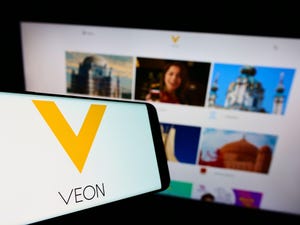Verizon, AT&T Land Biggest Networx Deal
Verizon and AT&T have won nearly $1B in deals with The Department of Homeland Security under the Networx Universal contract
May 15, 2008

Verizon Communications Inc. (NYSE: VZ) and AT&T Inc. (NYSE: T) have landed what one Verizon executive says could be the largest deal in the federal government’s Networx Universal contract. The value of the deal with Department of Homeland Security is just under $1 billion with Verizon winning the lead provider’s spot and a lion’s share of the contract with $678.5 million over 10 years. (See Verizon Nabs Networx Deal and AT&T Wins DHS Deal.)
“We think DHS is probably the largest award that will be made on Networx,” says Marlin Forbes, regional vice president of Verizon Enterprise Solutions . Homeland Security comprises 22 individual agencies with over 5,000 agency sites worldwide. Verizon had already been a provider for DHS under the old Federal Telecommunications Services 2001 contract, but with Sprint Corp. (NYSE: S) being left out of Networx Universal, Verizon now takes on a much larger role.
“Under the old agreement, Sprint had about half the DHS agencies while we had the other half. With this we pick up about 4,000 new locations that we didn’t have. It’s significant growth for us,” says Forbes. AT&T wasn’t a player at all for the DHS under the FTS 2001 deal, so this represents entirely new business for the carrier. AT&T will pick up about 300 locations as a backup alternative provider.
The federal government’s General Services Agency (GSA) awarded the $20 billion Networx Universal contract last year to AT&T, Verizon, and Qwest. (See Networx Numbers Big for VZ, AT&T, Qwest.) Under the deal, the three carriers won the right to bid on individual government agency’s business. The deal could extend to be worth as much as $48 billion over 10 years. With that much money on the table, it presented a big growth opportunity for the telcos.
But with over a year passing since the award, little has happened. Forbes says that’s due to the increasing complexity of providing enterprise-level communications with the biggest difference being the managed services involved.
“This is really a completely different business from what we had under FTS 2001,” says Forbes. “We’ve gone from being their service provider to their partner where we’re not just providing the services, but managing both their network and their security. You have a requirement in the new contract to keep them on pace with new technology.”
Complex managed services have become more of a focal point in the enterprise side of carrier’s businesses. As networks and services become more complicated, customers continue to turn to that carrier’s expertise to manage everything for them. It’s a new concept for both the private and public sector and one that Forbes says many were waiting on the DHS to lead the charge on.
“I think people were waiting to see what happened with the DHS contract because of its complexity and size,” says Forbes on another potential reason why government agencies have been slow to adopt the new Networx Universal contract. Now that DHS has been awarded, we could see a flood of new deals handed out.
In the last two weeks Verizon also landed Networx deals with the Department of Energy and the Federal Emergency Management Agency (FEMA). Those deals were quite small in comparison to the DHS award, but represented entirely new business that Verizon did not have under FTS 2001.
— Raymond McConville, Reporter, Light Reading
About the Author(s)
You May Also Like












